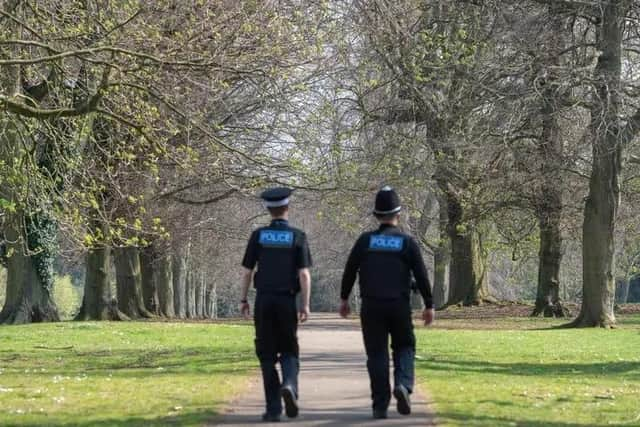Black and Asian people more likely to get Covid fines than white people in Nottinghamshire
and live on Freeview channel 276
Human rights organisation Liberty said the figures – which show significant disparity across England and Wales – are evidence of the Government prioritising criminalisation over public health, and of bias within police forces.
Figures obtained via a Freedom of Information request to the National Police Chiefs Council show Nottinghamshire Police issued 2,354 fixed penalty notices for breaches of coronavirus regulations between March 2020 and January 2022, where an ethnicity was stated.
Advertisement
Hide AdAdvertisement
Hide AdOf these, 1,684 were handed to white people, which – according to the latest population estimates – equates to a rate of 17.4 fines for every 10,000 white people in the area.


Black people received just 309 fines, but this equates to a rate of 113.2 in every 10,000 people – meaning they were 6.5 times more likely to be fined.
And Asian people received fines at a rate of 43.4 per 10,000 people, meaning they were also 2.5 times more likely to be fined.
Figures from 43 territorial police forces in England and Wales, as well as British Transport Police and Ministry of Defence Police, show black people were about 2.6 times more likely to be fined than white people.
Advertisement
Hide AdAdvertisement
Hide AdThis rate varied from 1.5 in North Yorkshire to 10.9 in Sussex, where the figures allowed for an accurate rate to be calculated.
Meanwhile, Asian people and those of mixed ethnicity were 1.9 times and 1.4 times more likely to receive fines, respectively.
The NPCC was asked to provide the number of fixed penalty notices issued for breaches under coronavirus regulations between March 2020 and June 2022, broken down by ethnicity of the person receiving the fine. No fines were issued from February 2022 onwards.
Liberty said the powers handed down to police during the pandemic were too broad and resulted in ‘heavy-handed policing’ and exposed ‘symptomatic’ biases.
Advertisement
Hide AdAdvertisement
Hide AdJodie Beck, Liberty policy and campaigns officer, said: “By prioritising criminalisation over public health, the Government laid the foundations for overzealous policing that fell hardest and most unfairly on people of colour.
“The response to the pandemic exposed pre-existing inequalities in how certain communities are over-policed.”
Campbell Robb, chief executive of social justice charity Nacro, said: "Over policing and criminalising people from ethnic minority backgrounds can have far-reaching consequences, by eroding trust between communities and the authorities.”
The National Police Chiefs’ Council said early results from independent analysis of fines – due out this autumn – show disparities across race, but these are ‘not necessarily a sign of discrimination’.
Advertisement
Hide AdAdvertisement
Hide AdAn NPCC spokesman said instances with no justifiable reason for a disparity must be addressed and much has been done by policing to combat racism already.
He said policing is more inclusive and more diverse than ever, but it is "inevitable" that racist views and bias may exist among some staff because they are drawn from wider society.
He said: “Racism or discrimination of any kind is deplorable, completely unacceptable and should have no place in society and no place in policing.”
A Home Office spokesman said enforcement of Covid laws was used only as a last resort and it expects all officers to carry out their duties without prejudice.
